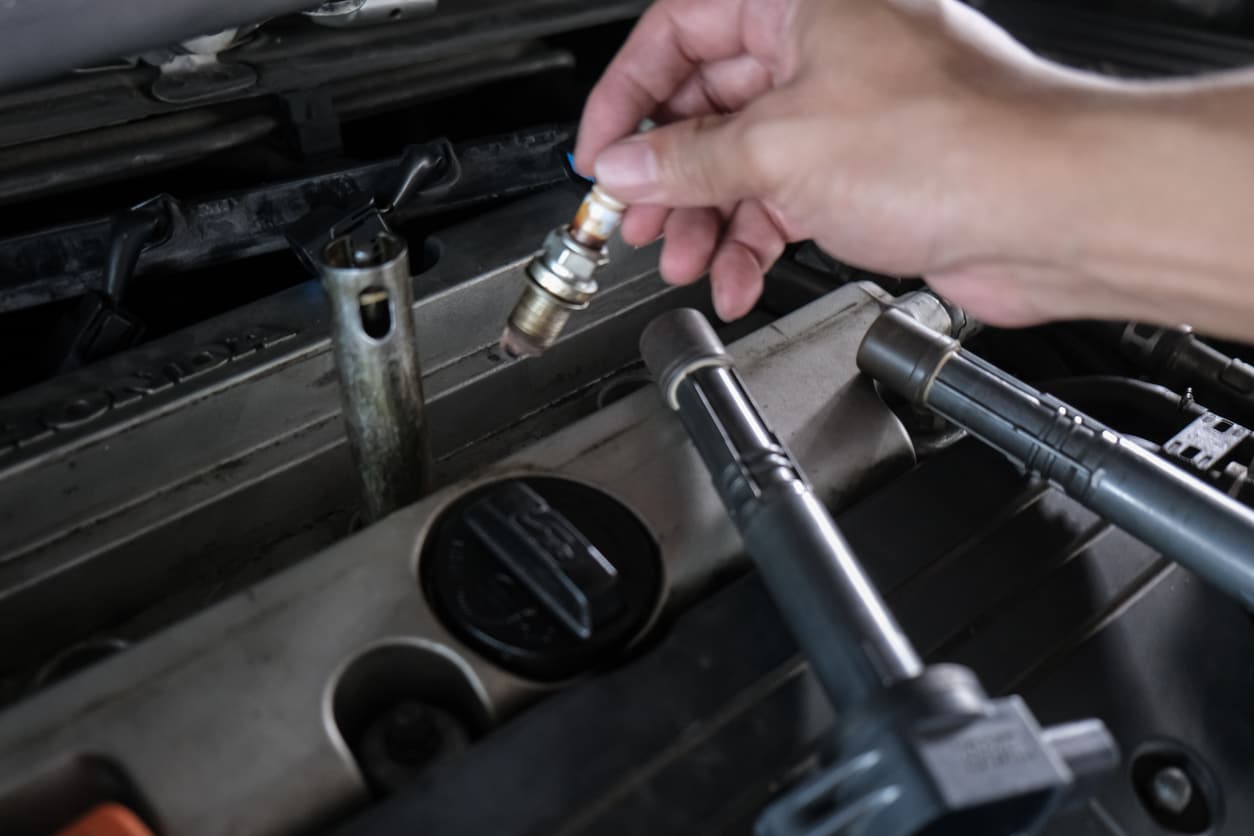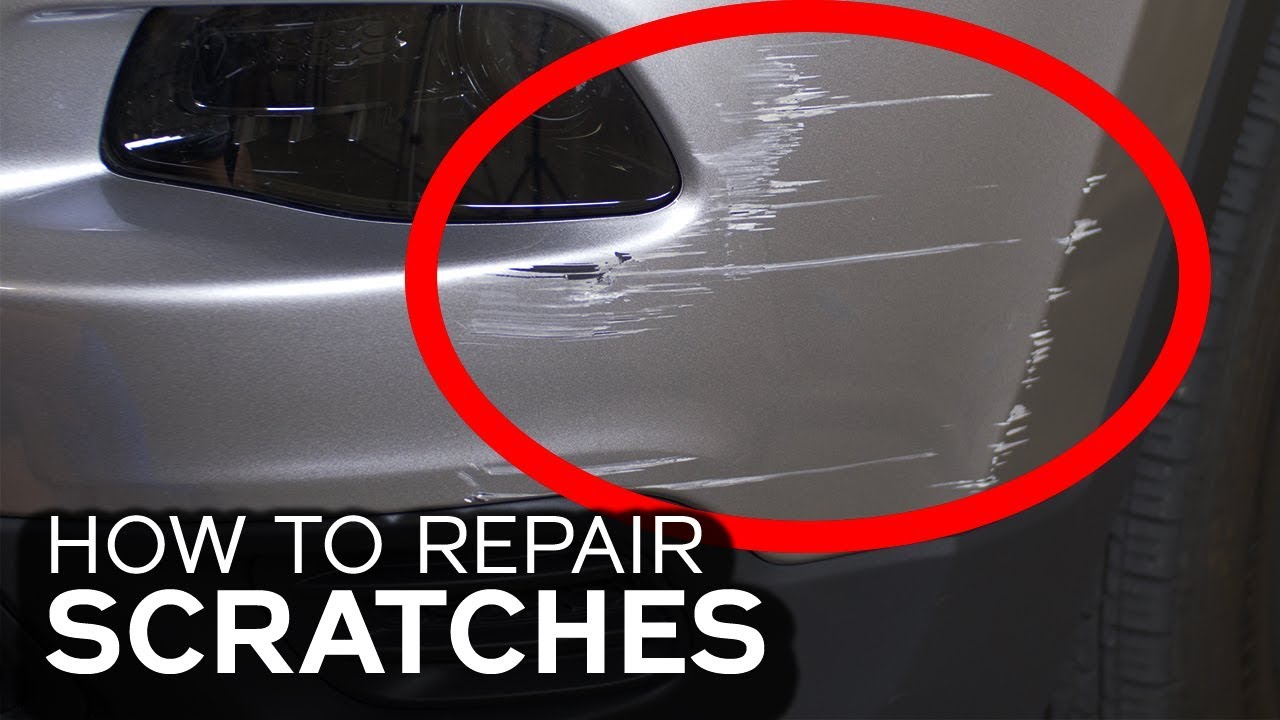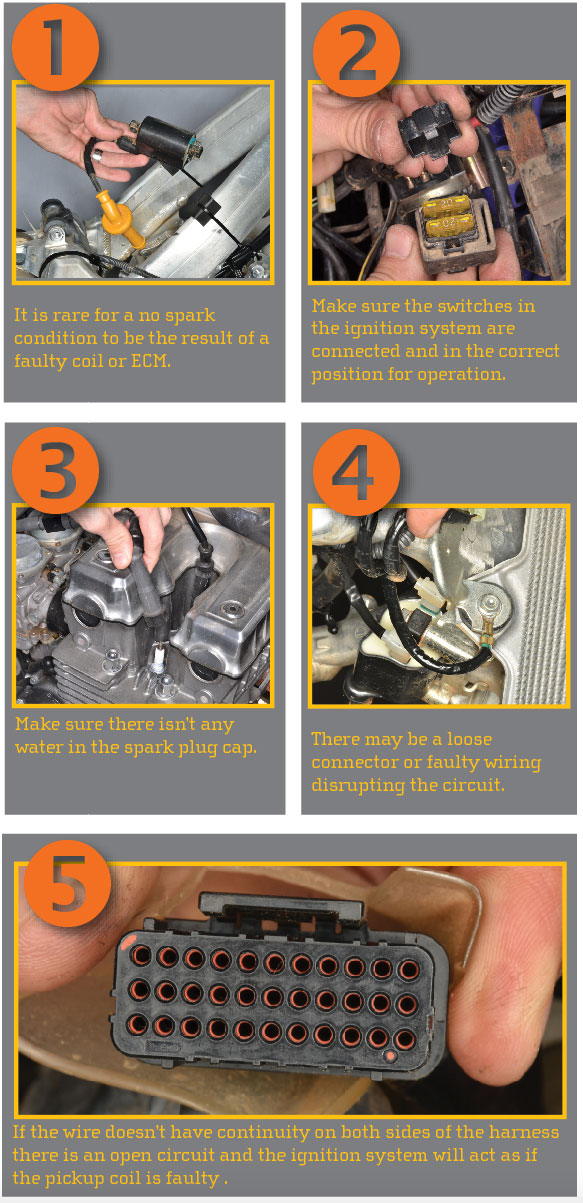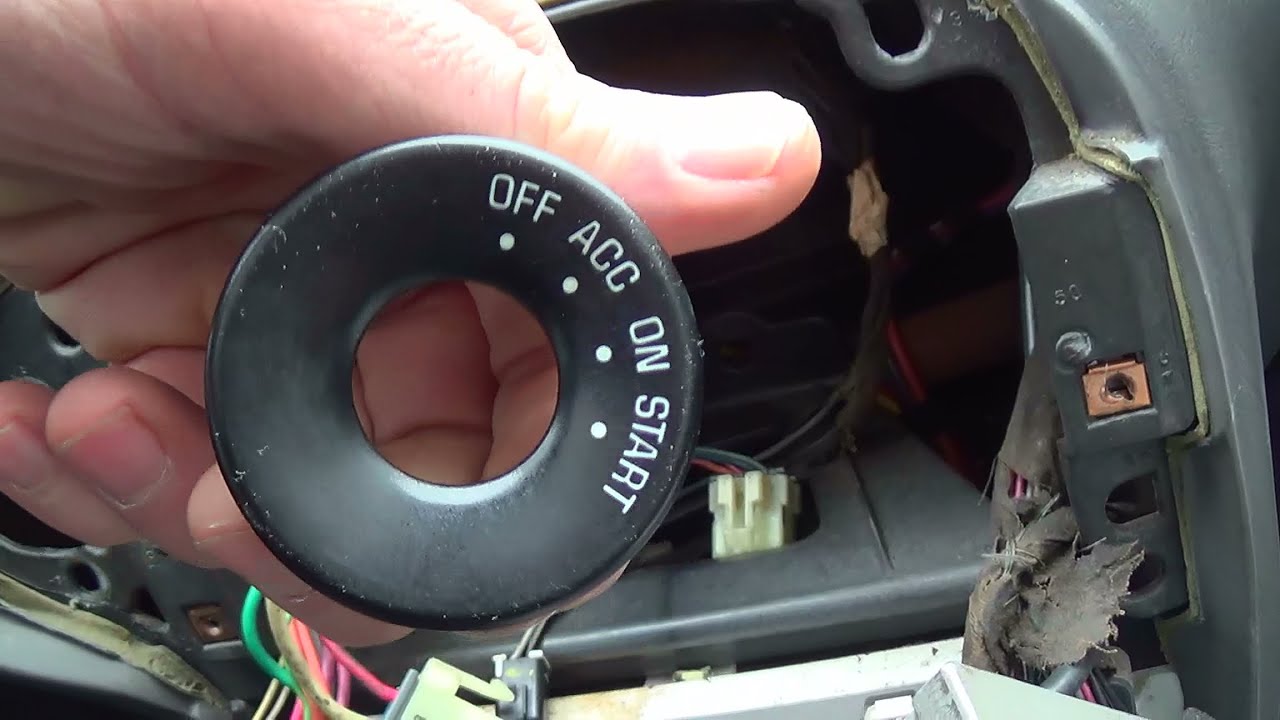Can a Bad Coil Pack Cause a No Start
Yes, a bad coil pack can prevent a car from starting. A faulty coil pack disrupts ignition, leading to a no-start condition.
Starting issues in a vehicle can be incredibly frustrating, especially when you can’t seem to pinpoint the problem. The ignition coil pack plays a crucial role in the engine’s ignition system, providing the spark needed to ignite the air-fuel mixture in the combustion chamber.
When this component fails, it can lead to a variety of issues, with one of the most severe being the inability for the car to start at all. Understanding the symptoms and consequences of a bad coil pack is essential for any car owner, as this can save time and money on repairs. Diagnosing and addressing a faulty coil pack promptly can ensure that your vehicle remains reliable and ready to go whenever you turn the key. Keep your engine’s health in check and be aware of indicators that might signal trouble with your ignition system.
Identifying A Bad Coil Pack
An engine’s spark is its heartbeat, and the coil pack is a vital part. Without a healthy coil pack, a car may not start or even stall completely. This section digs into the nitty-gritty of spotting a faulty coil pack and how it affects your engine’s performance.
Common Symptoms Of Coil Pack Failure
Recognizing the signs of a failing coil pack can prevent you from being stranded. Here are some common symptoms:
- Misfires: Your engine stutters or jerks during acceleration.
- Poor fuel economy: More fuel is used as the engine struggles to compensate.
- Engine light: The check engine light glows on your dashboard.
- Hard starts: The engine takes longer to start or doesn’t start at all.
- Reduced power: Your car feels less responsive and weaker overall.
Diagnosing Issues With A Multimeter
Using a multimeter, you can test the coil pack’s health. Here’s how:
- Set the multimeter to ohms (resistance).
- Locate the vehicle’s coil pack and disconnect it.
- Place each multimeter lead on the coil pack’s terminals.
- Compare readings with standard values in the service manual.
- Irregular readings suggest a problem with the coil pack.
When using a multimeter, always follow safety guidelines to prevent damage to your vehicle or yourself.
Role Of The Coil Pack In Engine Function
The coil pack plays a crucial role in the smooth operation of an engine. It’s an essential component that transforms the battery’s low voltage into the thousands of volts needed for spark plugs to ignite the fuel. Let’s dive into why it’s so vital for starting your car.
How Coil Packs Work
A coil pack consists of multiple ignition coils controlled by the car’s computer. These coils convert the battery’s 12 volts to the needed high voltage. This action is pivotal for creating a spark. Here’s a simplified breakdown:
- Battery Power: The process starts with your car’s battery.
- Transformation: The coil pack steps up the voltage.
- High Voltage: It generates enough power for the spark plugs.
The Importance Of Spark In Engine Ignition
Without a spark, your engine won’t start. Think of it as the match needed to light a fire. If the spark isn’t strong or doesn’t happen, combustion can’t occur to start the engine. Below, we highlight its importance:
- Combustion Starter: The spark ignites the air-fuel mix.
- Engine Rhythm: It’s necessary for rhythmic combustion.
- Vital for Start: No spark equals a no-start situation.
Consequences Of A Faulty Coil Pack
The ignition coil pack plays a pivotal role in an engine’s performance. It provides the necessary spark to ignite the air-fuel mixture in the cylinders. A malfunctioning coil pack leads to a cascade of issues. Let’s delve into what this malfunction might entail.
From Misfires To A No Start Condition
A bad coil pack often starts with subtle signs. Drivers might notice the engine misfiring. This means the engine does not fire on all cylinders. Misfiring leads to noticeable jerks or a rough idle. If left unchecked, these problems can worsen. The engine might fail to start altogether. The car fails to turn on because the spark is too weak or nonexistent.
- Poor fuel economy
- Engine stalling
- Car not starting
Potential Damage Over Time
Ignoring a faulty coil pack invites further damage to the engine. Continuous misfiring stresses the catalytic converter. It can overheat and break down. Meanwhile, the engine wears prematurely due to inconsistent combustion. It results in costly repairs over time. To avoid such scenarios, car owners should address coil pack issues promptly.
| Issue | Consequence |
|---|---|
| Misfiring | Rough running, possible damage to spark plugs |
| Weak Spark | Poor acceleration, loss of power |
| Total Failure | Engine doesn’t start, potential for no ignition |
In conclusion, regular maintenance is crucial. It keeps the coil pack in good shape. This ensures the engine fires up every time. Preventative care saves money and headaches in the long run.

Credit: shop.advanceautoparts.com
Troubleshooting A No Start Situation
When your car fails to start, the problem can be a puzzling frustration. One possible culprit for this issue could be a bad coil pack. This critical component is necessary for sparking your engine into life. To solve a no-start situation, you need a methodical approach. Let’s dive into troubleshooting and rule out common problems.
Checking For Spark
The spark is essential for igniting the fuel-air mixture in your engine. A bad coil pack means no spark and, consequently, a car that won’t start. Determine if the spark is missing with these steps:
- Turn off your vehicle and open the hood.
- Locate the coil pack and remove the spark plug wire.
- Insert a spark tester into the wire, and ground it to the chassis.
- Ask someone to crank the engine while you watch for a spark.
No visible spark suggests a faulty coil pack or related problems.
Evaluating Fuel And Air Systems
An engine requires the correct balance of fuel and air to start. Problems here could prevent the engine from firing up. Check the following:
- Inspect the air filter for clogs that restrict airflow.
- Make sure the fuel pump is working by listening for its hum when the ignition is on.
- Check fuel lines for blockages and leaks.
- Verify that fuel injectors are not clogged.
These components must be in good working condition to start the engine.
Considering Other Electrical Issues
Electrical malfunctions often lead to no-start situations. Ensure your battery is fully charged and connections are clean and tight. The starting circuit should be the next focus area with key components to check:
| Component | What to Do |
|---|---|
| Starter Motor | Listen for a click when the key turns. No sound can indicate a starter issue. |
| Ignition Switch | Test for continuity to ensure it’s functioning. |
| Battery Terminals | Clean any corrosion and check for tight connections. |
| Relays and Fuses | Verify that none have blown and replace as necessary. |
Address any found issues to restore starting capability.
Repair And Replacement Essentials
When a car refuses to start, the coil pack could be the culprit. This vital component is an integral part of the ignition system. It sends voltage to the spark plugs. This ignites fuel within the engine’s combustion chambers. A faulty coil pack means no spark, leading to a no-start condition. Careful diagnosis followed by timely repair or replacement is critical.
Step-by-step Guide To Replacing A Coil Pack
Replacing a coil pack requires attention to detail. It is crucial for engine performance. The steps below provide a clear path to a successful coil pack replacement.
- Disconnect the battery’s negative cable to ensure safety.
- Locate the coil pack on the engine.
- Remove the engine cover if necessary.
- Label the spark plug wires to ensure proper reassembly.
- Detach the spark plug wires from the coil pack.
- Unbolt the old coil pack from its position.
- Take off the old coil pack and replace with the new one.
- Secure the new coil pack in place.
- Reattach the spark plug wires to the new coil pack.
- Reconnect the battery and test the engine.
Choosing The Right Parts For Your Vehicle
Selecting compatible components for a vehicle can be daunting. Coil packs are no exception. The correct parts ensure optimal engine performance and longevity.
Always check the vehicle’s manual for specifications. This includes the right part number. Match your coil pack with the engine’s needs. Consider brand reputation and warranty offers.
| Consideration | Details |
|---|---|
| Compatibility | Ensure the coil pack fits your specific engine model. |
| Quality Assurance | Choose brands with proven reliability. |
| Warranty | Opt for parts with a warranty for peace of mind. |
| Reviews | Read customer reviews for first-hand experiences. |
| Price | Compare costs, but don’t compromise on quality. |
With care and the right parts, replacing a coil pack can restore your vehicle’s start-up and have it running smoothly.
Preventing Future Ignition Problems
Your car’s ignition system is the powerhouse that gets your engine going. A bad coil pack can turn your daily ride into a no-start nightmare. To avoid being caught off guard by ignition issues, proactive measures are key. Below are expert strategies to ensure your ignition system runs smoothly.
Regular Maintenance Tips
- Stay on top of service schedules: Your vehicle manual outlines when to service essential parts.
- Check battery health: A strong battery ensures proper electrical flow.
- Clean engine components: This reduces wear and tear on ignition parts.
- Inspect spark plugs and wiring: Look for signs of damage or corrosion.
Adhering to these tips keeps the engine’s heart healthy.
Recognizing Early Warning Signs
Spot trouble before it escalates. Be alert for these symptoms:
- Engine misfires: A stuttering engine often hints at coil pack issues.
- Rough idling: An engine that shakes at a stop could mean ignition problems.
- Decreased fuel economy: If your car guzzles more gas, check the ignition system.
- Lack of power: A sluggish response when accelerating is a red flag.
| Symptom | Possible Cause | Action |
|---|---|---|
| Engine light on | Faulty coil pack | Diagnose with scanner |
| No start | Coil pack failure | Test and replace coils |
Awareness and timely action can prevent no-start dilemmas.

Credit: www.youtube.com
Frequently Asked Questions Of Can A Bad Coil Pack Cause A No Start
Can A Bad Coil Pack Prevent Engine Starting?
A faulty coil pack can indeed fail to provide the necessary spark for ignition, which will prevent the engine from starting. It’s a critical component for engine operation.
What Symptoms Indicate A Failing Coil Pack?
Symptoms of a bad coil pack include engine misfires, rough idling, decreased power, poor fuel economy, and an illuminated check engine light. Diagnosing the issue quickly is vital.
How Does A Coil Pack Affect Car Performance?
A defective coil pack disrupts the ignition process, leading to misfires and uneven power delivery. This results in a noticeable dip in the vehicle’s overall performance and drive quality.
Is It Safe To Drive With A Malfunctioning Coil Pack?
Driving with a faulty coil pack is not recommended. It puts stress on the engine and can lead to further damage. It’s best to address the issue promptly to avoid safety risks.
Conclusion
Understanding the role of a coil pack is essential for vehicle maintenance. A faulty one can indeed prevent your car from starting. Thus, addressing coil pack issues promptly can save you from unexpected hassles. Regular inspections and timely replacements keep your engine running smoothly.
Remember, a healthy coil pack means a reliable start every time.






